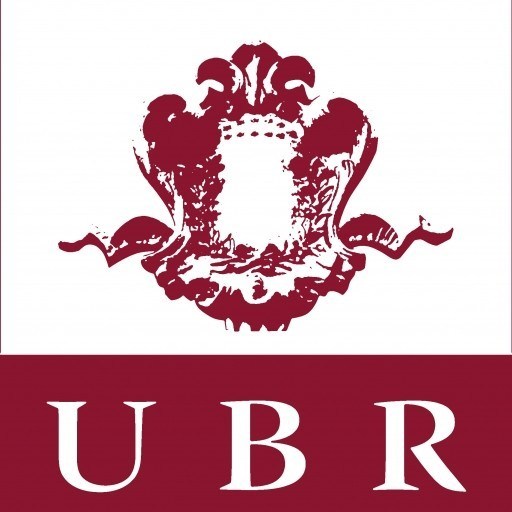Photos of university / #brownu
Ethnic Studies at Brown University offers a comprehensive interdisciplinary program dedicated to exploring the histories, cultures, and contemporary experiences of diverse ethnic groups. The program encourages students to critically examine issues of race, ethnicity, identity, social justice, and systemic inequality through a variety of approaches, including history, sociology, literature, political science, and anthropology. Students engaging in Ethnic Studies at Brown gain a nuanced understanding of the social dynamics that shape individual and collective identities, fostering critical thinking and intercultural awareness. The curriculum encompasses coursework in African American, Latino, Asian American, Indigenous, Middle Eastern, and other ethnic communities, emphasizing both local and global perspectives. Students have opportunities to participate in research projects, community engagement, and internships that connect academic learning with real-world impact. The program also offers specialized seminars and a senior thesis option, allowing students to deepen their investigation into topics such as social justice movements, representation in media, migration, and racism. Faculty members are active researchers committed to advancing knowledge in the field and engaging students in meaningful dialogue about current issues affecting marginalized communities. Graduates of the Ethnic Studies program at Brown are prepared for diverse careers in public policy, education, advocacy, journalism, social services, and further academic pursuits. The program is designed to promote critical awareness, cultural understanding, and active citizenship, contributing positively to society by fostering an appreciation of diversity and challenging injustice.
| ETHN 0500 | Introduction to American/Ethnic Studies | 1 |
| Any two introductory courses in Latino/a, Africana, Asian-Amerian, or Native American Studies. The courses in the list below are exaples of these courses. Other courses may be approved by the Advisor. | 2 | |
|
AFRI 0090 |
An Introduction to Africana Studies | |
|
A course from the AMST 1610 series, as approved by the concentration advisor |
||
|
ANTH 1121 |
From Coyote to Casinos: Native North American Peoples and Cultures | |
|
SOC 1270 |
Race, Class, and Ethnicity in the Modern World | |
|
ANTH 1400 |
Race, Culture, and Ethnic Politics | |
|
or ANTH 1420 |
Ethnicity, Race, and Gender in the Americas | |
|
Courses taught by core Ethnic Studies faculty may be recognized in consultation with concentration advisor. |
||
| Any three courses in Ethnic Studies that address the student's focus area (as approved by the concentration advisor), for example: | 3 | |
|
ETHN 0090A |
The Border/La Frontera | |
|
ETHN 0090B |
Critical Mixed Race Studies in the Twenty-First Century | |
|
ETHN 0270 |
Introduction to Latino/a History | |
|
ETHN 0300 |
Ethnic Writing | |
|
ETHN 0512 |
Introduction to Latina/o Cultural Studies | |
|
ETHN 0790A |
Latina/o Literature | |
|
ETHN 0790B |
Native Americans and the Media | |
|
ETHN 0790C |
Theory Into Practice: Service Learning at a Dual Language Charter School | |
|
ETHN 0790D |
Race and Remembering | |
|
ETHN 0880 |
Hip Hop Music and Cultures | |
|
ETHN 0980 |
The Research Process: Qualitative and Ethnographic Methods | |
|
ETHN 1020 |
Race and Language in the United States | |
|
ETHN 1050 |
Race in the Americas | |
|
ETHN 1070 |
Ethnic Studies Practicum: Strategy, Tactics and Tools for Social Change | |
|
ETHN 1750A |
Immigrant Social Movements: Bridging Theory and Practice | |
|
ETHN 1870A |
Ethnic Los Angeles | |
|
ETHN 1870B |
Latino/a Communities Seminar | |
|
ETHN 1870C |
Native North Americans in the Media: Representations and Self Representations in Film | |
|
ETHN 1870D |
Chicana/o Fiction | |
|
ETHN 1870E |
Queer Latina/o Literature and Theory | |
|
ETHN 1870F |
Eating Cultures | |
|
ETHN 1870G |
Reading Race: Advanced Seminar in Critical Race Theory | |
|
ETHN 1890A |
Seminar on Latino Politics in the United States | |
|
ETHN 1890B |
Native American and European Contact in Early North America, ca. 1600-1750 | |
|
ETHN 1890C |
Business, Culture, and Globalization: An Ethnographic Perspective | |
|
ETHN 1890D |
Indigenous Music of the Americas | |
|
ETHN 1890E |
Johnny, Are You Queer: Narratives of Race and Sexuality | |
|
ETHN 1890F |
Bad Boys and Bad Girls in Asian American Literature and Culture | |
|
ETHN 1890G |
Native Americans in the Media: Representation and Self-Representation on Film | |
|
ETHN 1890H |
Introduction to American Indian Studies | |
|
ETHN 1890J |
Native American Environmental Health Movements | |
|
ETHN 1890K |
Engendering Empire | |
|
ETHN 1890L |
(De)Colonizing Women: Writing the Third Space | |
|
ETHN 1890M |
Treaty Rights and Food Fights: Eating Local in Indian Country | |
|
ETHN 1890N |
Thawing the "Frozen Indian"; American Indian Museum Representation | |
|
ETHN 1890O |
The Latina/o Novel | |
|
ETHN 1890P |
Introduction to Native American Literature | |
|
ETHN 1890Q |
The Hispanic Caribbean and its Diasporas | |
|
ETHN 1890R |
Latina Feminisms | |
|
ETHN 1890S |
Youth, Art, Engagement and Social Justice | |
|
ETHN 1890U |
Extravagant Texts: Reading the World Through Asian American Literature | |
|
ETHN 1892 |
Race, Class and Gender in Latino Communities | |
| Any three courses drawn from a list of related courses (as approved by the concentration advisor). | 3 | |
| A course from the ETHN 1900 series. 1 | 1 | |
|
ETHN 1900A |
Alien Nation: US Immigration in Comparative Perspectives | |
|
ETHN 1900B |
Community, Language and Literacy: A Practicum | |
|
ETHN 1900C |
Contemporary Latino/a Education in the United States | |
|
ETHN 1900D |
Latino Communities Seminar | |
|
ETHN 1900E |
Senior Seminar in Ethnic Studies | |
|
ETHN 1900F |
Theory, Creativity, Activism | |
|
ETHN 1900G |
Race and Immigration in the Americas | |
|
ETHN 1900H |
What is Ethnic Studies? | |
|
ETHN 1900N |
Transpacific Asian American Studies | |
| Students in the concentration should also take a WRIT course from within the concentration, from a list of cross-listed courses, or from a course approved by their advisor. | ||
| Students should also be sure to take a methods course. | ||
| Total Credits | 10 | |
| 1 |
To be taken in the first semester of the student's final year. The senior seminar is the capstone course and is required of all concentrators. |
Requirements
- Test Requirements: Applicants can satisfy our testing requirement in one of two ways: (1) Either the SAT and any two SAT Subject Tests, or (2) the ACT. Applicants who take the redesigned SAT are not required to take the optional writing section. For applicants who take the ACT, we strongly encourage, but do not require, the writing component. Brown will accept test results for either the old or the new SAT.
- Official test results must be sent directly to Brown from either the College Board, which administers the SAT, or from the American College Testing Program, which administers the ACT.
- To have scores sent to Brown, you will need to provide our institutional code numbers:
- For the SAT, Brown's code number is 3094
- For the ACT, Brown's code number is 3800
- You are welcome to take advantage of the College Board's Score Choice option, but this may delay your scores being received by Brown---a delay may mean we will not read your application until we receive a full set of official test scores.
- Please note: we encourage students to have at least one set of scores in our office by the appropriate application deadline.
- An official transcript of your complete high school academic record must be sent to the Office of College Admission directly from each secondary school you have attended.
- We will accept transcripts submitted by your school(s) through online services, such as Docufide, Naviance, and the Common Application. If you are unable to submit through one of these online services arrange to have your materials sent directly to Brown University, Office of College Admission, Box 1876, Providence, RI 02912 or fax to 401.863.9300.
- Your midyear school report including final grades for fall courses and a list of your spring courses can be submitted online through the Common Application.
- Through the Common Application applicants can request school forms and recommendations via email from their guidance counselor and from two teachers who have taught them in major academic subjects (science, social studies, mathematics, foreign language, English).
- If you are considering a Bachelor of Science degree or the Program in Liberal Medical Education, at least one of your recommendations should come from a math or science teacher. In addition, we highly recommend that applicants to the PLME program submit results for at least one science SAT Subject Test.
- Please note: secondary school personnel do not need to wait until you have submitted your application before making their contributions. The online system will lead you through the process of supplying the name and email address of your counselor and teachers so that a user account can be created for them. They will then be able to submit forms on your behalf either electronically or via regular mail.
- Please note: applicants are neither required nor expected to provide additional materials, but the opportunity to do so is available to any candidate. Applicants are not expected to provide additional materials as part of the admission process.
- We prefer that you upload supplementary materials to your file after you receive your Brown account username.
- We recommend that you do not send a collection of award certificates or similar materials.
- If you are accomplished in music or visual art, you may include additional supplements along with your application in the Common Application, through SlideRoom. You do not need to wait for your Brown account username to upload music or visual art materials to SlideRoom.
- Please note: SlideRoom only accepts one submission, if submitting two you will need to sign up with a second email account.
- Auditions and portfolio reviews are neither required nor reviewed for students interested in Theatre Arts & Performance Studies.
- If you have a YouTube video we recommend uploading the link via our self-service site once you receive your Brown account username.
The Ethnic Studies program at Brown University offers a comprehensive overview of the social, political, and cultural dynamics influencing various ethnic groups. Funding options for students pursuing this program are multifaceted, designed to support diverse financial needs and ensure equitable access to education. Brown University provides a range of financial aid opportunities, including need-based grants, scholarships, and loans. The university's Financial Aid Office strives to meet 100% of demonstrated financial need for admitted students through a financial aid package that may include grants that do not require repayment, reducing the reliance on loans and minimizing debt post-graduation. For undergraduate students, Brown offers the Brown Promise program, which guarantees full financial aid for admitted students from families with an annual income below a specific threshold, and the Brown Undergraduate Application for Aid (BUAA) for financial need assessment. Graduate students enrolled in Ethnic Studies programs may access fellowships, research assistantships, teaching assistantships, and departmental funding that support research projects, coursework, and academic pursuits. Additionally, students are encouraged to explore external funding sources such as federal and state grants, private scholarships, and sponsorships from community organizations aligned with ethnic studies themes. Brown University also participates in federal loan programs like the Direct Lending Program, which offers low-interest student loans to eligible students to bridge the gap between financial aid and educational expenses. International students seeking financial support have access to limited scholarships and should contact the International Office for guidance on available options. The university’s emphasis on diversity and inclusion extends to its financial aid policies, aiming to make Ethnic Studies accessible to students from all backgrounds. Students are advised to apply early for financial aid and to review specific eligibility criteria and deadlines rigorously. Overall, the funding landscape for Ethnic Studies at Brown University is designed to provide ample opportunities for students to finance their education through a combination of internal aid, external scholarships, and government programs, ensuring that financial barriers do not hinder access to this vital and impactful academic discipline.
Ethnic Studies at Brown University is an interdisciplinary program that explores the histories, cultures, and social issues related to diverse ethnic and racial groups. It aims to deepen students' understanding of the experiences of marginalized communities and to promote social justice and equity. The program draws on methods and perspectives from history, literature, sociology, political science, and other disciplines, providing a comprehensive approach to studying ethnicity and race. Students enrolled in Ethnic Studies at Brown have opportunities to engage with a variety of courses that cover topics such as racial identity, immigrant experiences, indigenous rights, social movements, and systemic inequality. The program encourages critical analysis of historical and contemporary issues through a combination of theoretical frameworks and empirical research. It also emphasizes experiential learning, including community engagement and internships, to apply academic insights to real-world challenges. Faculty members are renowned for their scholarship in ethnic and racial studies, and they often collaborate on projects that address pressing social issues. Graduates of the program have gone on to careers in academia, public policy, community organizing, journalism, and beyond, contributing to social change and advocacy. Brown University's commitment to a diverse and inclusive academic environment supports students from various backgrounds, fostering a campus culture that values multiculturalism and social awareness. Through seminars, research opportunities, and collaborative projects, the Ethnic Studies program at Brown encourages students to critically examine the structures of power and privilege, and to develop strategies for promoting social justice. Overall, the program prepares students to become informed, engaged citizens capable of addressing complex issues related to race, ethnicity, and social justice in a globalized society.









